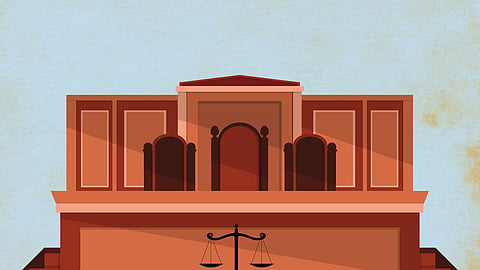

ON MONDAY, THE SUPREME COURT COLLEGIUM recommended the elevation of Chief Justice of the Bombay High Court, Alok Aradhe, and Chief Justice of the Patna High Court, Vipul Manubhai Pancholi, as judges of the Supreme Court of India.
The Supreme Court issued a statement to this effect but provided no details regarding the factors considered by the Collegium in recommending these two names.
Currently, the Supreme Court Collegium comprises Chief Justice of India B.R. Gavai and Justices Surya Kant, Vikram Nath, J.K. Maheshwari, and B.V. Nagarathna. The statement does not clarify whether the decision was unanimous or made by a majority.
Justice Aradhe played a key role in the Kolhapur circuit bench’s establishment
Justice Aradhe originally hails from the Madhya Pradesh High Court, where he was appointed as a judge on December 29, 2009. He was transferred to the High Court of Jammu and Kashmir and assumed charge on September 20, 2016. He assumed charge as the Acting Chief Justice there from May 11, 2018, and was later transferred to the Karnataka High Court on November 17, 2018.
Justice Aradhe functioned as Acting Chief Justice of the Karnataka High Court from July 3, 2022, to October 14, 2022. On July 19, 2023, he was appointed Chief Justice of the High Court for the State of Telangana.
Justice Aradhe was subsequently transferred to the Bombay High Court on January 21, 2025.
If appointed to the Supreme Court, Justice Aradhe will serve until April 12, 2029. His appointment would result in the Supreme Court having three judges from the Madhya Pradesh High Court, the other two being Justices J.K. Maheshwari and Satish Chandra Sharma.
Justice Aradhe played a key role in the establishment of Bombay High Court’s circuit bench at Kolhapur which CJI Gavai termed as the fulfillment of a “dream” that, Maharashtra chief minister Devendra Fadnavis noted CJI Gavai “personally monitored” the progress of.
Justice Pancholi in line to be CJI from 2031
Justice Pancholi was appointed as a judge of the Gujarat High Court on October 1, 2014. He was transferred to the Patna High Court on July 14, 2023, and appointed as its Chief Justice on July 21, 2025.
His elevation to the Supreme Court would supersede as many as 21 Chief Justices whose initial appointment as High Court judges predates Justice Pancholi’s.
If appointed to the Supreme Court, Justice Pancholi is expected to serve as Chief Justice of India from October 3, 2031, to May 27, 2033. His appointment would result in the Gujarat High Court having three judges in the Supreme Court, alongside Justices J.B. Pardiwala and A.N. Anjaria.
Justice Pancholi’s elevation supersedes several senior women judges despite low representation
Although several High Courts have multiple judges represented in the Supreme Court, the Supreme Court currently has only one woman judge, Justice B.V. Nagarathna. The Collegium last recommended three women judges for elevation in 2021, and no further recommendations for women judges have been made since then.
While the Collegium has not hesitated to allow the supersession of judges to appoint judges who are men, there appears to be reluctance when it comes to appointing women judges.
For instance, Chief Justice of the Gujarat High Court, Sunita Agarwal, appointed as a High Court judge on November 21, 2011, is senior to Justice Pancholi.
Similarly, Justice Revati Prashant Mohite Dere, appointed as a judge of the Bombay High Court on June 21, 2013, and Justice Lisa Gill, appointed as a judge of the Punjab and Haryana High Court on March 31, 2014, are both senior to Justice Pancholi.
Thus, it is not the case that senior women judges are unavailable for elevation. However, for reasons not disclosed by the Collegium, it remains unclear why senior women judges, as per all-India seniority, are overlooked, particularly when some High Courts are overrepresented in the Supreme Court.
A step back in terms of Collegium transparency
Transparency in Collegium resolutions has remained a longstanding problem. During the tenure of former CJI D.Y. Chandrachud, collegium resolutions elaborated numerous considerations such as regional, caste and gender diversity, alongside seniority of judges. While Collegium resolutions during the tenure of CJI Sanjiv Khanna became more terse, they continued to highlight considerations such as seniority of the judges. The Collegium’s statement under CJI Gavai detailing the appointments of Justices Aradhe and Pancholi reveals even less, providing no reasoning either regarding diversity considerations or seniority. This may be viewed as the Collegium reverting to a system of opacity.